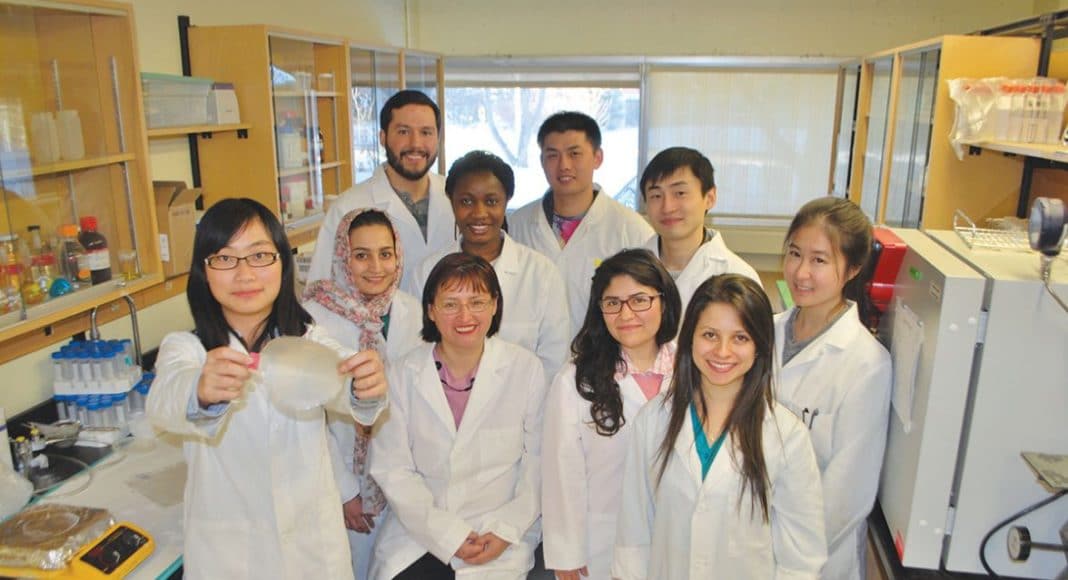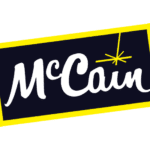[deck]A research team from the University of Alberta has created a starch-based bioactive film made from potato waste that’s both eco-friendly and rich in antioxidants.[/deck]
Science has yet to discover a method for turning a sow’s ear into a silk purse, but it has come up with a way to turn potato waste into an eco-friendly product that could one day take the place of traditional plastic food wraps.
A team of researchers at the University of Alberta is conducting a study into the use of potato waste products such as peels and culls to produce a film product that’s not only better for the environment but is also rich in antioxidants, a property that could actually extend the shelf life of many food items.
Led by Marleny Aranda Saldaña, a process engineer and associate professor in university’s Department of Agricultural, Food and Nutritional Science, the team is using a process called subcritical fluid technology to extract phenolic compounds from potato biomass. Phenolic compounds are metabolites found in fruit and vegetables that have antioxidant properties that play a key role in protecting plants from disease.
“Potato peels have high phenolic content, a natural compound for plant protection, which you also find in apple peels and grape peels, among others,” says Saldaña.
Subcritical fluid technology uses water above its boiling point and below its critical temperature, under pressure. It’s a greener technique than traditional methods that use the toxic solvent methanol to extract phenolic compounds. The technology also provides a medium for modifying starch that influence the film’s properties, such as its tensile strength, elongation and antioxidant and antimicrobial activity.
Improved Shelf Life
Saldaña says the antioxidant and antimicrobial aspects of the new bioactive wrap could act to improve product shelf life and safety if it proves to be useable in food packaging.
“Let’s suppose you have a bag of nuts and you leave it open. You will smell it within a week because it gets rancid,” she says. “If you have these bioactive compounds in the package and they are released in a controlled way, you can keep this product longer.”
Another advantage of the bioactive film Saldaña and her team are working on is that it’s more environmentally friendly than other similar products already on the market, most of which are petroleum-based.
“There is a big problem right now because we have all these petroleum-based plastics and they do not biodegrade fast. The time it takes for them to do so is about 20 years,” she says. “It’s a long time, and then we are having all these contamination and pollution issues and landfills are already full.”
Saldaña says the inspiration for the project dates back to when she was recruited as an assistant professor by the University of Alberta in 2008, which just happened to be declared the International Year of the Potato by the United Nations.
Saldaña noted the province was home to a $1-billion-a-year potato industry, and she thought all those processed potatoes products such as french fries and snack chips would no doubt result in a substantial amount of peels. While some of that waste was processed into starch, Saldaña began wondering what other possible uses there might be for it.
Having previously worked with supercritical fluid technologies as part of research groups in Brazil, Germany, the Netherlands and Japan, Saldaña knew potato peels contained concentrated phenolic compounds. What if you could use those compounds and the antioxidants they contained to help fight against free radicals, the scavenger molecules capable of damaging a body’s DNA, she wondered?
That led Saldaña and her team to apply for funding to Alberta Innovates Bio Solutions, which provides funding to support research and innovation in the agriculture, food and forestry sectors. They also received funding from the Natural Sciences and Engineering Research Council of Canada.
Bio Solutions executive director Cornelia Kreplin says her agency has invested in technology at the university in the past and it made sense to build on that investment. Another consideration, she adds, was the fact that the technology Saldaña and her team are pioneering has the potential to turn a waste product into something useful.
“That’s one of the opportunities we really need to assess is whether Alberta with a little bit of research and innovation and eager companies … could build a food packaging industry. This would be one of those components,” Kreplin says.
“Hopefully there’s a company that we can engage in some form of application. … Let’s do a few trials and see how well this bioactive film performs and then you get into the commercialization process when you have to go to pilot and scale up and do a marketing and business plan.”
Commercializing Process
Saldaña’s team has been working with TEC Edmonton, one of the country’s top business incubators, to help commercialize the process.
TEC Edmonton initiated the patent filing process.
Darrell Petras, associate director of TEC Edmonton’s technology management team, says his group was very supportive about the concept when they were approached about becoming involved because it’s a good fit with the organization’s mandate to evaluate new technologies for commercialization.
“Absolutely,” Petras says. “These are the kinds of things we’re looking for, for sure, and that’s why we try to bring the right team from TEC Edmonton together and have them provide advice and be more hands-on with patent evaluations, market research and developing the business opportunity.
There is a big problem right now because we have all these petroleum-based plastics and they do not biodegrade fast.
– Marleny Aranda Saldaña
Saldaña and her team have already completed the first stage of their research, which was the development of the film product and the testing of its mechanical properties such as elongation, tensile strength and transparency. They have also concluded testing of its antioxidant capacity.
The researchers are currently involved in testing the antimicrobial properties of the film in collaboration with microbiologist Michael Ganzle and its capacity for extending the shelf life of food products. Saldaña says it’s her hope that this phase of testing will be concluded sometime in 2016.
Saldaña says test results to date have been encouraging and she remains confident that her team’s efforts could eventually lead to commercialization of the product. “I think the main challenge is time and resources,” she says.
Terence Hochstein, executive director of the Potato Growers of Alberta, says while it might be some time before the bioactive film is available to consumers, he is intrigued by what it could mean for the potato industry.
“I think it’s a really novel idea. Any time you can take a big food source … like potatoes and create something better by value adding, that’s a win-win for the industry,” he says. “But just because it works in a lab you’ve still got work to do to see if it will work in industry.”
Saldaña acknowledges there has been quite a bit of interest in the project, not just here in Canada and the U.S. but around the globe. She has already received inquiries from as far away at England, Italy and Brazil about what she and her team are planning to do with the technology.
“There’s a lot of interest. People are saying this looks really cool because it’s a great idea and uses a green technology. They say whenever you have some product ready to go we are OK to buy it,” she says, laughing.











